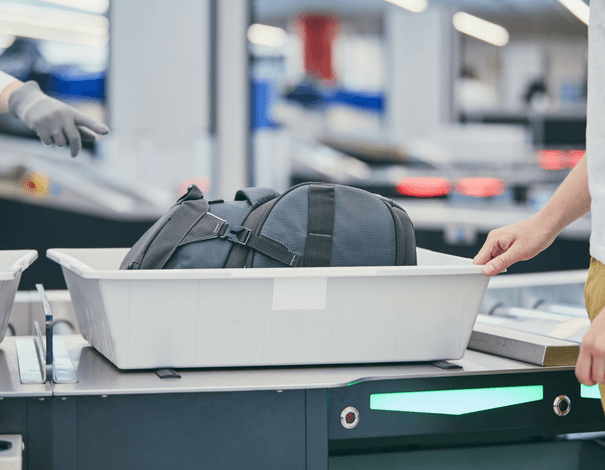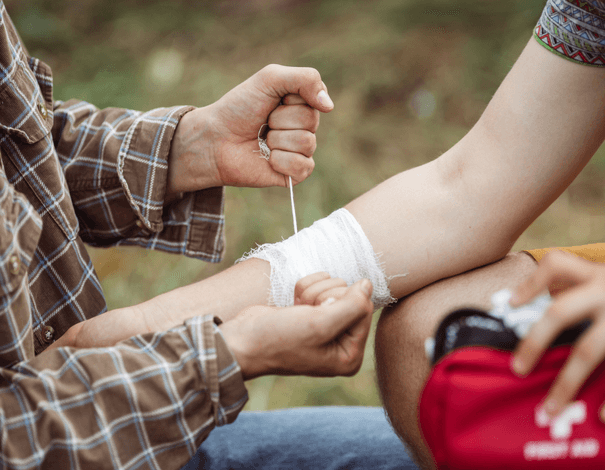Travelling with Diabetes
Whether it’s for work, to visit family abroad, or for leisure, travel is for everyone, including those with type 2 diabetes. All it takes is some planning and a few precautions to help you get the most out of your trip.Preparing to travel
It’s best to book an appointment with your doctor a few weeks before you leave, to make sure your health is stable. If need be, he or she can also sign a letter authorizing you to travel with your medication and supplies (needles, syringes, insulin, lancing device, lancets, etc.).
It’s also important to check that your immunizations are up to date and, depending on your destination, to inquire whether you will need any specific vaccinations or preventive treatment, such as hepatitis vaccine or malaria treatment. For more information about warnings concerning your particular destination, go to travel.gc.ca.
If you need a vaccine, book an appointment at a travel health clinic or consult your pharmacist. In some Canadian provinces, pharmacists are authorized to provide travel health services such as vaccinations and to prescribe certain preventive treatments. Book your appointment well in advance as some vaccines must be administered several weeks before you travel in order to be effective.
In some countries there is a risk of getting traveler’s diarrhea, also known as “turista” or “Moctezuma’s revenge.” For diabetics, it is important that diarrhea be treated promptly, as it can lead to dehydration and cause blood sugar levels to drop (hypoglycemia). Your pharmacist can explain measures that can reduce your risk and provide relief.
Depending on your destination and your current health, your pharmacist can also recommend which medications and supplies to bring along in your travel kit, for example:
- Sunscreen
- Antibacterial hand disinfectant
- Antibiotic ointment and bandages
- Powdered rehydration solution
- Anti-diarrhea medication
- Anti-nausea medication
- Pain or headache medication
- Insect repellent (especially if you are visiting a place where malaria or the Zika virus is present)
Be sure to pack enough medication for the duration of your travel, plus some extra in case you lose it or your return date is pushed back (delayed flight, for example).
Ask your pharmacist to provide you with a complete list of your medications. It will come in handy when you go through customs or if you need to consult a healthcare professional during your trip. A bracelet (Medic-Alert) can identify you as a diabetic in the event of an accident or loss of consciousness. It is also best to store your medication in the original packaging or in pharmacy-labelled vials or bottles.
Medication that requires refrigeration should be kept in an insulated bag or lunchbox with an icepack for longer trips or in very hot conditions, for example in a car in summer. If you are unsure how to pack it, ask your pharmacist for advice. Make sure you have somewhere to store it once you reach your destination.
Important precautions during travel
If you are taking a long car trip, be sure to take regular breaks to stretch your legs, eat a snack, and stay hydrated. If you are travelling by plane or bus, stand and walk in the aisle from time to time.
For air travel, it is highly recommended that you have your medication in your carry-on bag in case your checked baggage is lost or delayed. Also, the temperature in checked baggage holds can drop below freezing, which can adversely affect certain medications.
Inquire with your airline whether a meal or snack will be served, and advise them that you are diabetic. If need be, bring along your own food.
If you will be changing time zones during your journey, consult your pharmacist to see whether you will need to adjust your medication schedule.Once you reach your destination
When you’re travelling, meals are often different from those you make at home. It’s important to maintain your healthy eating habits:
- Eat appropriate serving sizes
- Eat proteins at every meal
- Opt for fruits and vegetables as opposed to processed foods
Strive to maintain a balanced diet while enjoying the local cuisine and flavours.
Depending on the type of travel, you may walk a lot or do different physical activities than you’re used to. Be aware, especially in hot climates. Drink water and have a snack or source of fast-acting sugar with you in case you need it. Wear comfortable shoes and examine your feet regularly to be sure you don’t develop blisters or cuts.
Good planning is key to enjoying peace of mind during your travels. Your pharmacist is a healthcare professional who can be of great assistance in planning your trip. Feel free to ask for their help.
The pharmacy services presented in this section are offered by pharmacist owners who are affiliated with Uniprix. The pharmacists are solely responsible for the professional activities carried out during the practice of pharmacy. These services are offered in participating pharmacies only. Certain fees and conditions may apply.
* The information contained herein is provided for informational purposes only and is not intended to provide complete information on the subject matter or to replace the advice of a health professional. This information does not constitute medical consultation, diagnosis or opinion and should not be interpreted as such. Please consult your health care provider if you have any questions about your health, medications or treatment.




